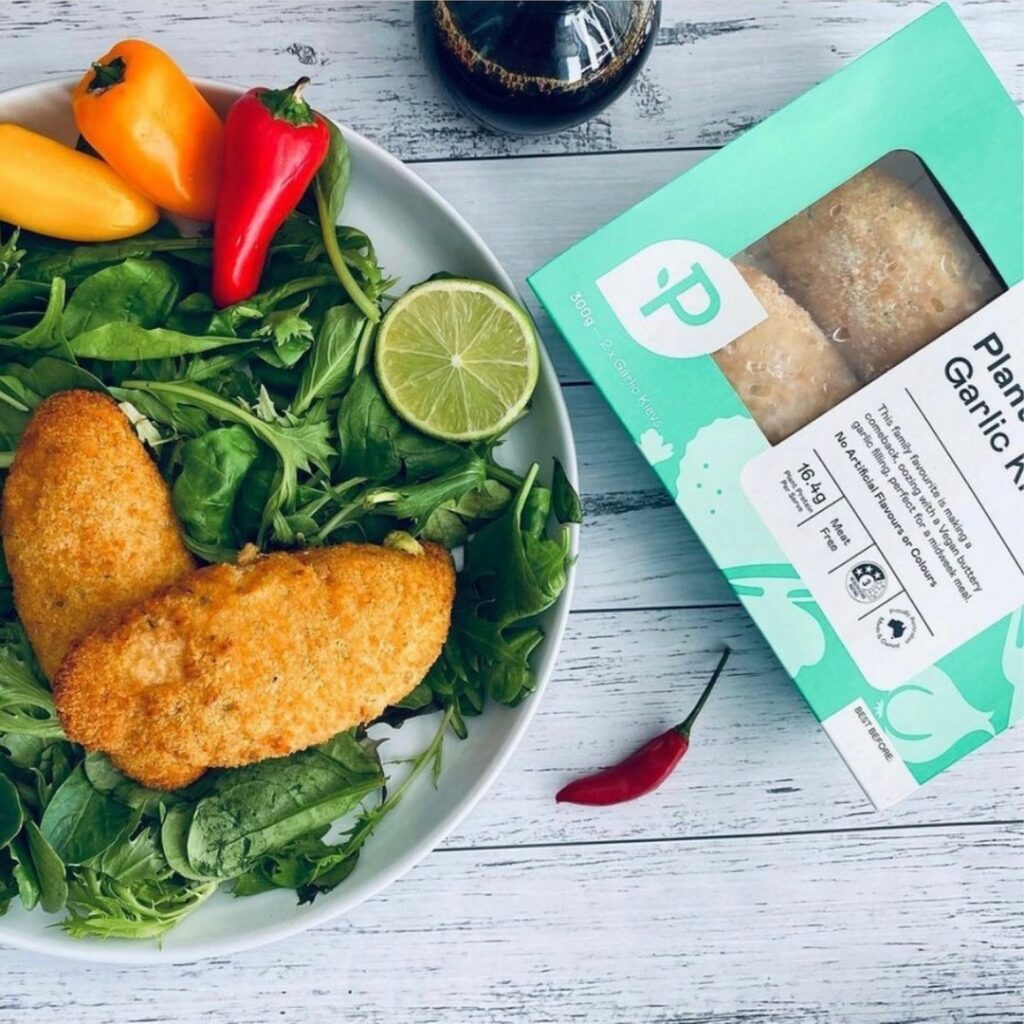
Article
New economic data shows that despite global economic challenges, Australia’s plant-based meat industry is still steadily expanding!
In a landscape marked by economic turbulence, the burgeoning plant-based meat industry in Australia has emerged as a beacon of resilience.
The latest insights from a 2023 State of the Industry report by Food Frontier have revealed that Australia’s plant-based meat industry remains steadfast in the face of macroeconomic headwinds, and continues to show a promising trajectory – a testament to its enduring popularity and rising future potential.
Despite the economic challenges faced by plant-based meat companies … it’s evident that the industry is here to stay, and that Australia is performing better than overseas markets in the face of these pressures.
Food Frontier report

Results showed that Australia’s plant-based meat manufacturing industry contributed $45.8 million in value to the economy in the 2023 financial year, and projected that it could be contributing more than a whopping half a billion dollars to the economy by 2033.
Other key findings from the 2023 State of the Industry report include:
📈 Consumption is up: Per capita consumption of plant-based meat in Australia increased by 28% between 2020 and 2023.
🛒 Consumer sales are up: Plant-based meat sales in Australia surged by an impressive 47% between 2020 and 2023, reaching a total of $272.5 million in 2023.
🌿 Manufacturing capacity is up: The number of domestic manufacturers of plant-based meat has more than doubled since 2020, and, accordingly, the volume of plant-based meat produced locally has increased by 76%.
👍 Experts are on board: 85% of the 210 climate scientists and academics surveyed strongly agreed that plant-based alternatives are the “best available food” for improving our health and reducing global emissions.
🍝 The foodservice sector is driving growth: Wholesale demand for plant-based meat has surged – by a compound average growth rate of 59% since 2020 – as restaurants and food retailers race to meet the growing demand for meat-free options.
💸 Prices are coming down: Plant-based meat products are steadily approaching price parity with their conventional meat counterparts, especially domestically manufactured products, which are on average 14.8% cheaper than imported products.
⭐ The future looks bright: The Australian plant-based meat market is tipped to reach a value of $1.65 billion and support more than 6000 jobs by 2033.
Informed by new Deloitte Access Economics data, as well as industry consultations and primary data analysis by Food Frontier, the report’s findings paint the picture of a robust sector that has weathered not only inflation, the cost-of-living crisis, and reduced capital flow, but also the fluctuations typical of a new food category – and only looks poised for further growth here in Australia.

Global economic turbulence has given rise to unprecedented uncertainty across many sectors, especially those related to food production, and the plant-based meat sector is no exception.
Plant-based meat sales around the world reached a record high in 2020, but according to analysts, this significant market growth would have been challenging to maintain, even without the ensuing macroeconomic challenges that sent operating and manufacturing costs skyrocketing over the next three years.

Between inflation and the cost-of-living crisis, consumers around the world have been tightening their purse strings, which has impacted the retail sales of many food products seen as discretionary or ‘luxury’ items, not just plant-based meat.
Consumers are increasingly conscious of prices in the current economic environment.
Food Frontier report
US retail sales data from 2022 and 2023 shows that the average price-per-unit of both plant-based meat and animal meat increased, and 80% of US consumers reported making changes to their shopping behaviour as a result of these price increases.
The US and UK both saw a drop in retail sales of plant-based meat across 2022 and 2023 but a wider-lens view reveals a far more positive trend overall. From 2019 to 2022, plant-based meat dollar sales increased by 43% in the US – and in March of 2024, UK supermarket giant Tesco announced that it is already seeing a second phase of popularity for vegan meat alternatives.
A recent YouGov survey even found that as many as 39% of Australians are looking to cut out or cut back on meat, and a similar portion are open to switching to plant-based meat.

The fact that Australian plant-based meat sales soared by 47% between 2020 and 2023 – and per capita consumption increased by nearly one-third in the same timeframe – certainly reflects a profound shift in our eating habits already.
Research has shown that the two main reasons plant-based meat is increasingly appealing to consumers are the health and environmental benefits.
A 2022 study by The George Institute analysed the nutritional value of meat products such as mince, sausages, bacon, burgers, and poultry, and compared them to their plant-based counterparts.
What stood out was that plant-based meat analogues came out on top in terms of their Health Star Rating and nutrient content for almost all the nutrients we assessed.
Maria Shahid, The George Institute, lead author
On average, the plant-based meat products were found to contain 50% less saturated fat and 22% less sodium, and to have equivalent protein and energy values – as well as the added benefit of health-promoting fibre, which is not present at all in conventional meat products.
In terms of a direct swap, researchers concluded that plant-based meats have a “healthier nutritional profile” and are the better choice overall.

While grocery costs remain a crucial consideration for consumers here in Australia and around the world, Food Frontier’s 2023 State of the Industry report shows that plant-based meats are edging ever closer to reaching price parity with their conventional meat counterparts.
The price premium for plant-based meat products has reduced significantly (from 49% to 33%) since 2020, with domestically manufactured products leading the charge.
Mince, snacking, and beef-style strip formats have seen the greatest price reductions, with some products in these formats now only costing a few cents more per kilo than the animal meat version.

With a projected market size of $1.65 billion by 2033, Australia’s plant-based meat industry certainly looks set to continue reshaping the food system and the way we eat for the better – for our health, animals, and the planet.
Despite the challenges of the last three years, the commercial and economic opportunities presented by plant-based meats and the broader plant-based food sector remain, as does the environmental, health, and societal imperative to diversify protein supply with familiar and convenient alternatives.
Food Frontier report
The foodservice sector in particular is emerging as a dynamic arena for plant-based meat. Wholesale demand grew by a remarkable 59% per year between 2020 and 2023, with innovative new vegan meat products continuing to entice retailers, chefs, and consumers alike.
We can’t wait to see even more plant-based options hitting restaurant menus, food chains, supermarket shelves, and dinner plates at home in the coming years! ![]()
Keen to dive into this topic in more detail? Check out the full Food Frontier report for a comprehensive analysis of the current economic trends, plant-based meat market dynamics, and broader implications for the food industry at large.

Maggie’s passion for fresh, local produce began in the 90s when she first harvested the oranges in her backyard for a glass of fresh-squeezed Florida orange juice — though her Dad may remember the details of labour a little differently. Now she adds berries to her chocolate and sneaks pumpkin into brownies so she can confidently and incorrectly refer to them as health foods.